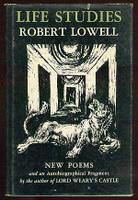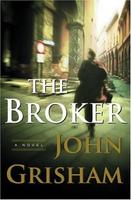Dien Cai Dau by Yusef Komunyakaa (1988). A few years ago, I read Neon Vernacular and was immediately a fan of Komunyakaa. As I was piecing together the syllabus and assignments for my American Lit class, I decided I needed to read this book to try to let it impact me as it did readers when it first came to the attention of poetry lovers.

This volume should be required reading for anyone studying the literature of the Vietnam War. The much anthologized "Facing It" is one of most powerful pieces I've read about the Memorial Wall and the many issues and problems soldiers dealt with and continue to deal with. The poem's placement in the collection is key. Reading the poem in an anthology will have, I presume, an impact on readers. However, since Dien Cai Dau reads like a diary or journal of the experience, I think readers are likely to have a stronger reaction.
The verse is accessible and pulls no punches. It needs no tricks to shock the reader, and it does not rely on its subject matter to carry the emotional weight. This is also a book that leaves politics to the politicians, though in a way that does not ignore the subject, but allows the personal to become universal. No matter where one stands on this war, or even on the subject of poetry, Dien Cai Dau is a must read for any American.
Life Studies by Robert Lowell (1959). In the "Groundbreaking Books" section of the Academy of American Poets website is an nice introduction to this volume. After reading this short article and a couple other notes about Lowell, I read all his poems in an old textbook I had at the house this summer. Then I made up my mind to look at this whole book, and I'm very glad I did.
Life Studies is a rather personal book, one that might be partially responsible for the so called "confessional" sub-genre in American letters. However, one doesn't need to know Lowell or even sympathize with his various problems to find something meaningful in this book. (An exception to this might be Part Two, and long prose section entitled "91 Revere Street." I found this piece quite interesting, but I could see how it might not be to the liking of the average reader.)

One problem with the Confessional poets is that their works are so filled with emotional outbursts and supposedly "honest" feelings about people close to the writer, that readers are often left out of the experience. One is expected to vicariously experience events in the poet's life. Sometimes the subject matter is supposed to be enough for us to be interested in and empathize with the poet. I think good poetry stands on its own no matter who the writer him/herself is. This is why Life Studies is such an important book. One does not have to have a domineering mother or sometimes weak father or have been born into the same socio-economic class as Lowell to "get" what is going on here. One does not have to suffer from depression (or know someone who is depressed) to understand the pain and anxiety addressed here. (However, I do have some sense that reading this book may shed some light for those who wish to understand the disease more.) This is particularly apparent in the moving "Home After Three Months Away" and "Memories of West Street and Lepke."
One might also note Lowell's social and political commentary, as in "Inauguration Day: January 1953" and "Words for Hart Crane."
The Broker by John Grisham (2005). I was given this book as a Father's Day present, and finally got around to reading it. If you are looking for something that is entertainment only, this novel is okay...at least until a more compelling one comes along. I found the idea for the story very interesting, but the story itself is not plausible. The Broker is about Joel Backman, a man who is given a presidential pardon he does not ask for and does not deserve. He is taken to Italy, presumably to protect him from the many people and nations that want him dead. However, the real reason is so the CIA can see who kills him first. Somehow this murder is supposed to provide the CIA with information they need, enough to go through the trouble of whisking a convict across the globe, giving him a new identity, and teaching him a new language. The basic story of the main character trying to save his life was interesting, but I could not buy into the premise.

The book does not contain, for me, as much drama as I've come to expect from Grisham thrillers. The protagonist is a guy people want to kill, and I was pretty sure he'd get away, but the story is bogged down with conversations in coffee houses and at historic sites with agents and tutors. I had the impression that Grisham took a nice vacation in Italy and wrote a novel with this setting so he could write the trip off as a working expense. The novel is enjoyable, but nothing to get excited about.
Next month: Two issues of Poetry magazine and The Call of Stories by Robert Coles.









No comments:
Post a Comment